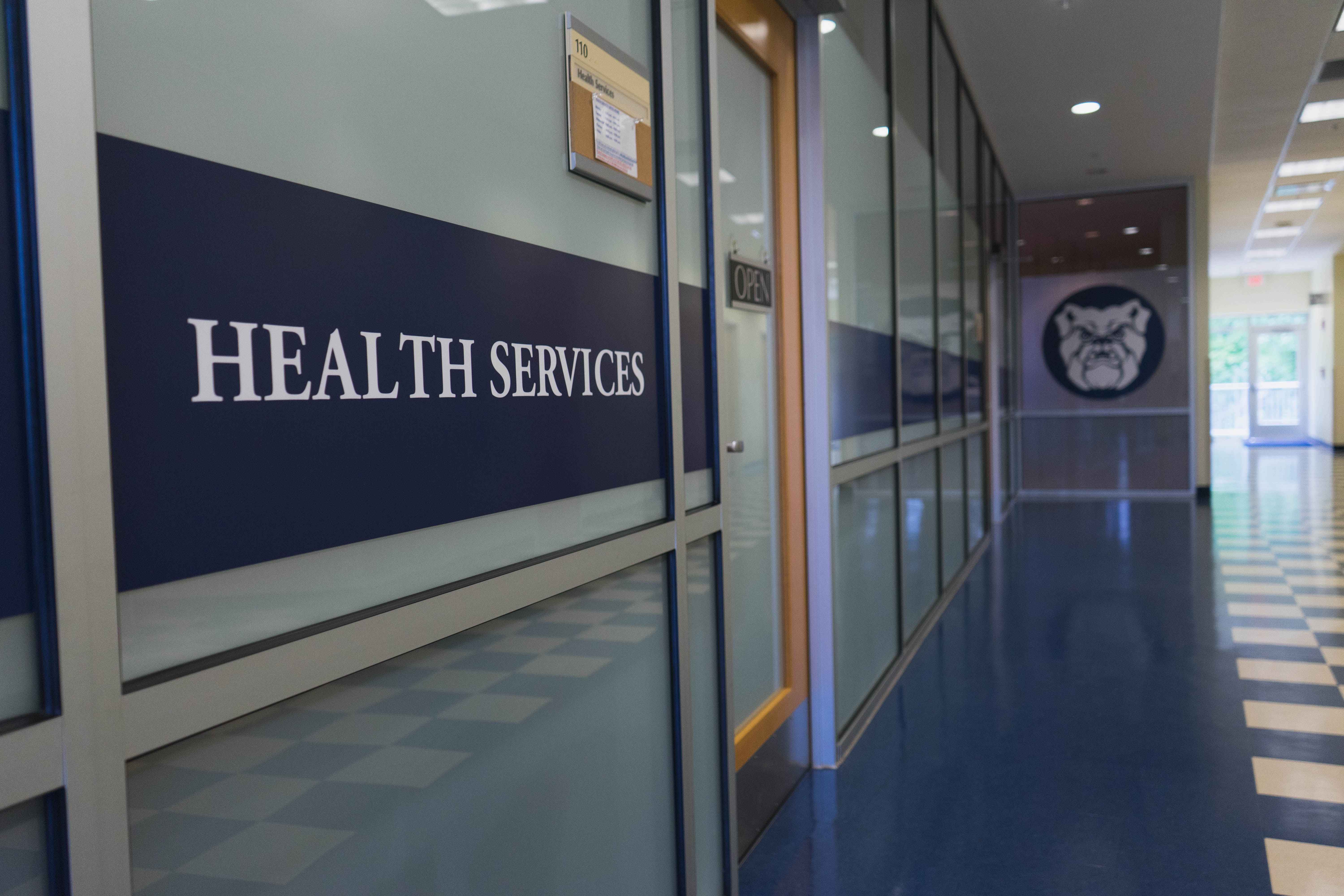ELLIE ALLEN | NEWS EDITOR | emallen2@butler.edu
ALISON MICCOLIS | STAFF REPORTER | amiccolis@butler.edu
In an email sent to students on Oct. 23, the university confirmed there would be no COVID-19 exit testing prior to students leaving campus for the fall semester.
For some students, the university’s email was a cause for concern. Since college campuses are potentially high-risk settings, many students are worried about the possibility of being infected with COVID-19 and bringing that infection back to their families.
Some cities and states require anyone entering to quarantine two weeks beforehand. Chicago currently requires those coming from certain states, including Indiana, to receive a negative test 72 hours before entering the city or quarantining two weeks before.
Amelia Engle, a first-year arts administration and theater double major, is getting tested off campus before returning home for Thanksgiving break. She said since younger people often don’t show symptoms, she does not want to take the risk of being infected and going home to her family.
Engle decided to get a test here rather than when she gets home, because she is unable to get a free test where she lives. Despite this, Engle said she thinks Butler should consider optional exit testing.
“I know some schools that are offering up testing before the break, and I haven’t heard that Butler is doing that,” Engle said. “So that might be nice and helpful, rather than like everyone trying to find their own test.”
Madison Murphy, a senior health sciences major, is planning to get tested before returning home, and she will be attending her last two weeks of class virtually. Murphy said her biggest concern is bringing the virus home to her parents.
Murphy also believes that the university needs a better plan for ensuring that students are able to return home safely.
“I feel like it’s not fully thought out,” Murphy said. “I think optional exit testing may have been a good thing for them to offer us, that isn’t being offered, or encouraging professors to go online for the last two weeks, even so that we were somewhat quarantining.”
A number of professors across the university have decided to move their last two weeks of instruction online or have given students the option to join class virtually if they want to self-quarantine.
Brenda Lee Johnston, department chair and assistant professor of arts administration, said she made the decision in September to move her classes online for the last two weeks of the semester. However, after talking with other faculty members, she changed her plans.
“[A faculty member] brought up a really good point that, you know, some students are feeling really isolated, and/or we all know we learned better in person and some are really cognizant of that and wanting to be in person,” Johnston said. “So for the next two weeks, I will give the students the choice.”
Johnston said she understands why some professors might not be able to make the same decision if their class needs to be in person for various reasons. She said even if students have a class that needs to stay in-person, she hopes by giving them the option to join her class remotely, they can limit the number of people they come into contact with, and therefore reduce their risk of infection.
While many individual professors are choosing to allow students to self-quarantine before returning home, there is no university-wide requirement for this. Individual professors determine whether or not students will have this option.
Murphy said her classes moving online had more to do with adapting to presentations than allowing students to quarantine. She said if she was not given the option to self-quarantine, she would be annoyed, but she does not think that would be the case unless it were a lab class.
“I mean, in COPHS they’ve been really great with like, if you feel more comfortable staying in your dorm or apartment,” Murphy said. “I’m not in any lab classes right now, so I’m not personally affected by that one, but certain labs are definitely something that you need to be hands-on for, so making that up in some way would be very difficult.”
Amy Peak, director of undergraduate health science programs, has been teaching her classes in a hybrid format due to capacity restrictions in her classrooms. She also said understands why some professors might have specific reasons they cannot allow a student to join remotely, but in general, she believes that if students are concerned about their safety, they should ask their professor if it is a possibility to join class remotely.
“Yes, I mean as long as I feel like that person is being honest and truthful, of course I’m going to give them that option,” Peak said. “I’ve been a professor for 20 years, and there have been times when students haven’t always been completely forthcoming and truthful. But I really haven’t seen a lot of that this year. I don’t really think people are trying to get out of work. I think people are living through a pandemic, and we can’t operate the same way we always have.”
Engle said it would be difficult for her to self-quarantine before returning home, because as a theater major, many of her finals are conducted in a hands-on manner. However, she said she does believe there needs to be a university-wide policy for self-quarantine.
“I don’t think a professor should be able to say no when you’re risking this much,” Engle said.



